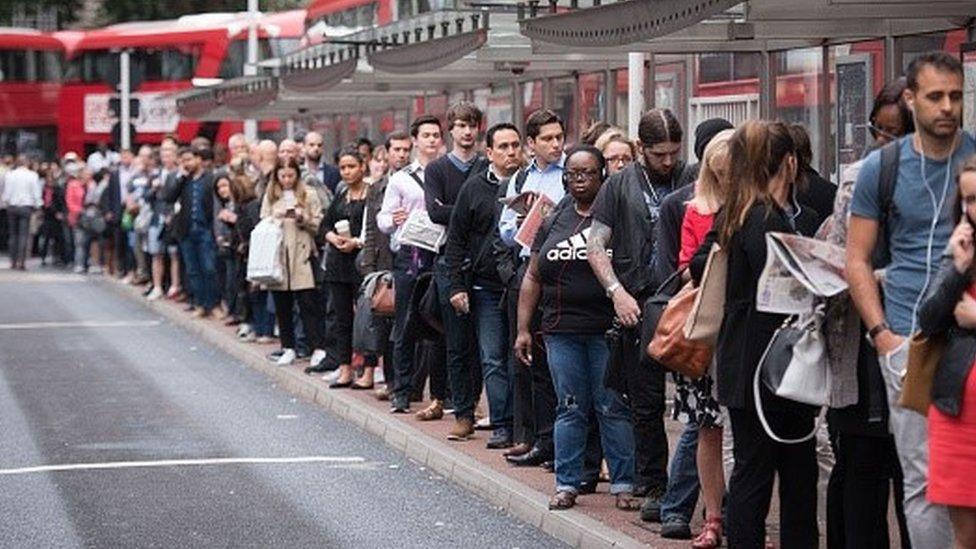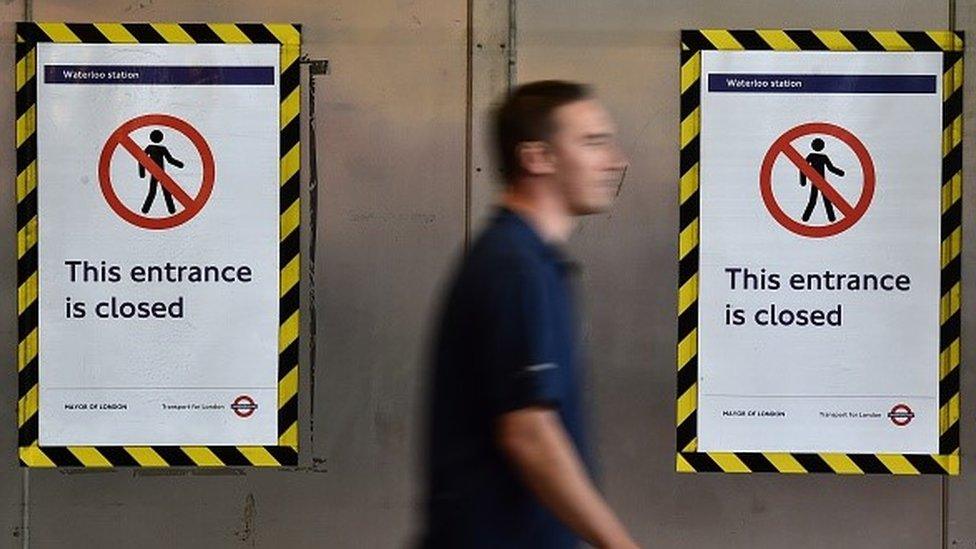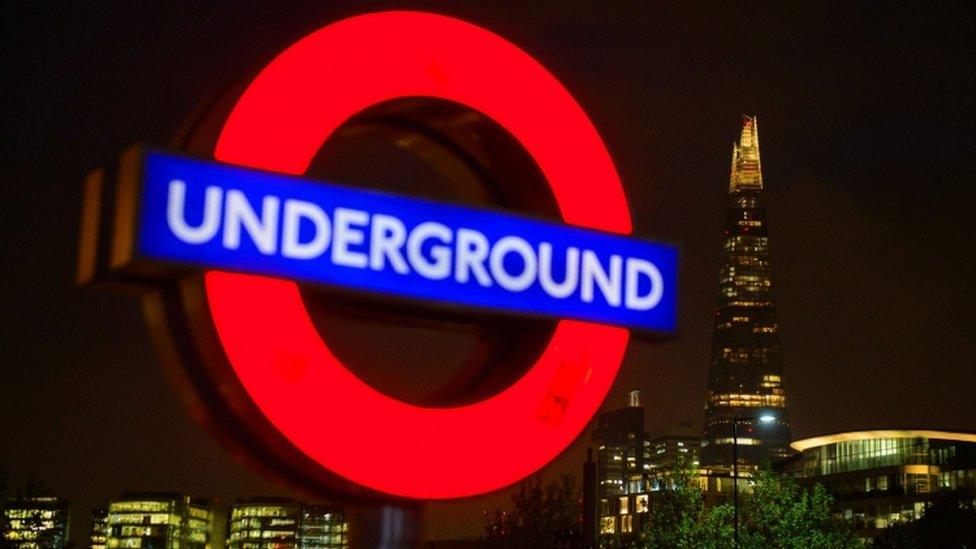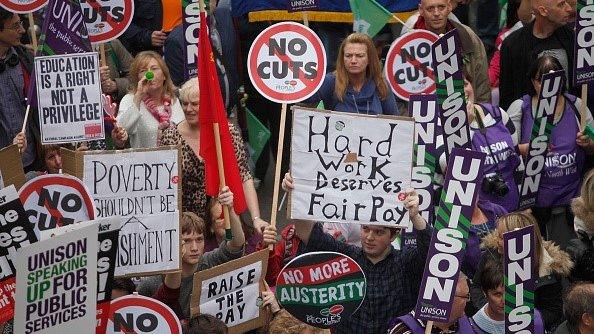Tube workers to be subject to tougher strike rules
- Published

Commuters queue for the bus at Victoria during August's Tube strike
The government has announced Tube staff will fall within the definition of "important services" which have to meet stricter conditions for striking.
Unions representing Tube workers will have to meet minimum thresholds of turnout and support in order to strike.
The change was welcomed by Conservative mayoral candidate Zac Goldsmith, who said it would avert "spurious" action.
Labour candidate Sadiq Khan claimed the move had been timed to "destabilise" negotiations over the Night Tube.
A series of Tube walkouts had been planned for dates in January and February, but Aslef, the Transport Salaried Staff Association and Unite have all agreed to suspend the action.
Rail, Maritime and Transport union reps will make a decision on Monday.

Last year's Tube strikes would have met stricter conditions for ballot turnouts and support
Ballots currently require a simple majority to back action.
But under the Trade Union Bill currently before Parliament, ballots in core services would need to attract a turnout of 50% or more - with at least 40% voting in favour - in order to be deemed lawful.
The government has now signalled its intention to include Underground, bus and tram drivers, conductors, guards and safety staff under those rules.
However, the strikes which took place in the capital last year would have met those conditions.
'Back-door ban'
RMT General Secretary Mick Cash accused the government of "trying to ban strikes by the back door".
But Employment Minister Nick Boles described the thresholds as "fairly balanced" with the right to strike.
Mr Goldsmith hailed the Tube service as "essential" and said the new criteria for industrial action would help avoid "strikes on spurious grounds with little real support".
Firefighters, doctors, nurses, border control staff and teachers at state schools will also be considered "important services" under the government's scheme.
- Published21 January 2016

- Published8 January 2016
- Published14 September 2015
